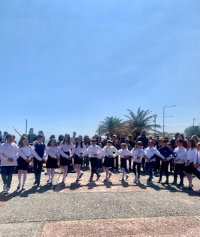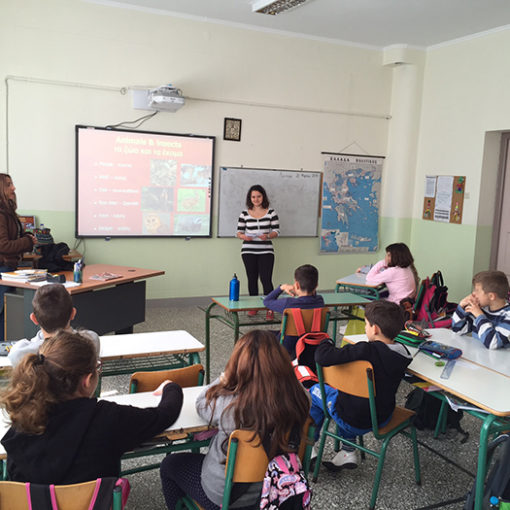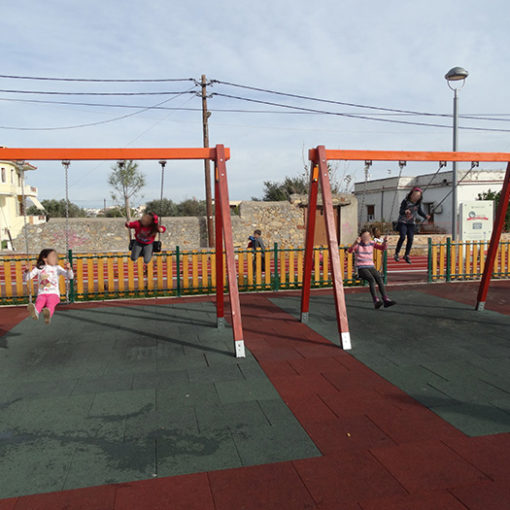As an ESC volunteer working in a primary school, there is a lot a lot is going on around the Independence Day of Greece on the 25th of March. There is also an important history behind Greek Independence Day to learn, which took place in the 19th century;
By the time the Greek War of Independence started, Greece had been ruled over The Ottoman Empire for approximately 400 years. That doesn’t mean that the Greeks didn’t stay true to their identity and culture, nor that there were no attempts to revolt and gain independence during those 400 years. Even though all the attempts had failed so far, the Greeks didn’t stop fighting for their freedom. In 1821, the Greek War of Independence started and it lasted for ten years.
It all started with a plan from a secret group called the Filiki Eteria, which was created in 1814. The plan started in 1821 and their goal was to overthrow the Ottoman rule. They came really far in revolting and they eventually ended up spreading to Crete, Macedonia and Central Greece. However, the Turkish Empire kept fighting against them and was therefore able to suppress the revolts and maintain a lot of power. This never-ending battle was the reason why eventually Russia, Great Britain and France got involved and helped Greece to reclaim their freedom. In 1832, Greece became independent. The flag of revolution was raised over the Monastery of Agia Lavra in the Peloponnese as well as the Moanthe Treaty of Constantinople was signed on the 25th of March 1832.

From then on everyone in Greece celebrates the Independence Day of Greece on the 25th of March. I got to experience this day on Chios island, on which I worked in the first grade in the third primary school of Vrontados. The celebrations in my school took place on Friday, the 24th of March. In the morning, the director of the school asked Marieke and I to prepare the auditorium for a play from sixth grade. Marieke is another volunteer from Germany. At 9 o’clock, the play started and while I had to take some pictures of the play, I also learned more about the history of Independence Day. Marieke and I also helped with making props for the play a few weeks before.

On the next day, the 25th of March, everyone on the island celebrated Independence Day by watching or maybe even marching in parades, going to restaurants and spending their day with family and friends. We (the six other volunteers and I) were planning on watching two parades. The first one is in Vrontados, the village where we live, and the second and bigger one is in Chios-city, the capital of the island. I always really look forwards to watching the parade in Vrontados because there are a lot of children from my school or even my grade marching in the parade. After the parade, all the marching children and young adults come together in front of the statue of Afanis Nautis (the Missing Sailor) and dance Greek dances. After everything came to an end in Vrontados, we decided to take a taxi to Chios-city. We were a little late and were therefore only able to see the last part of the parade. We were still able to enjoy the Greek music, impressive army, beautiful costumes and the scouts, who were part of the parade, while we cheered and clapped for everyone. The weather was good that day and we decided to eat ice cream at the port after the parade ended.
The motto of the revolution was “Freedom or death”. It took the Greeks more than ten years to win the Greek War of Independence and become independent again after they had been ruled over The Ottoman Empire for almost 400 years. All the parades, impressive army, beautiful costumes, marching children and happy Greek dances are nothing to what the Greeks deserve after they won and choose Freedom over death.
Sources:
- https://www.grekaddict.com/march-25th-greek-independence-day/, Grekaddict, 10-05-23




